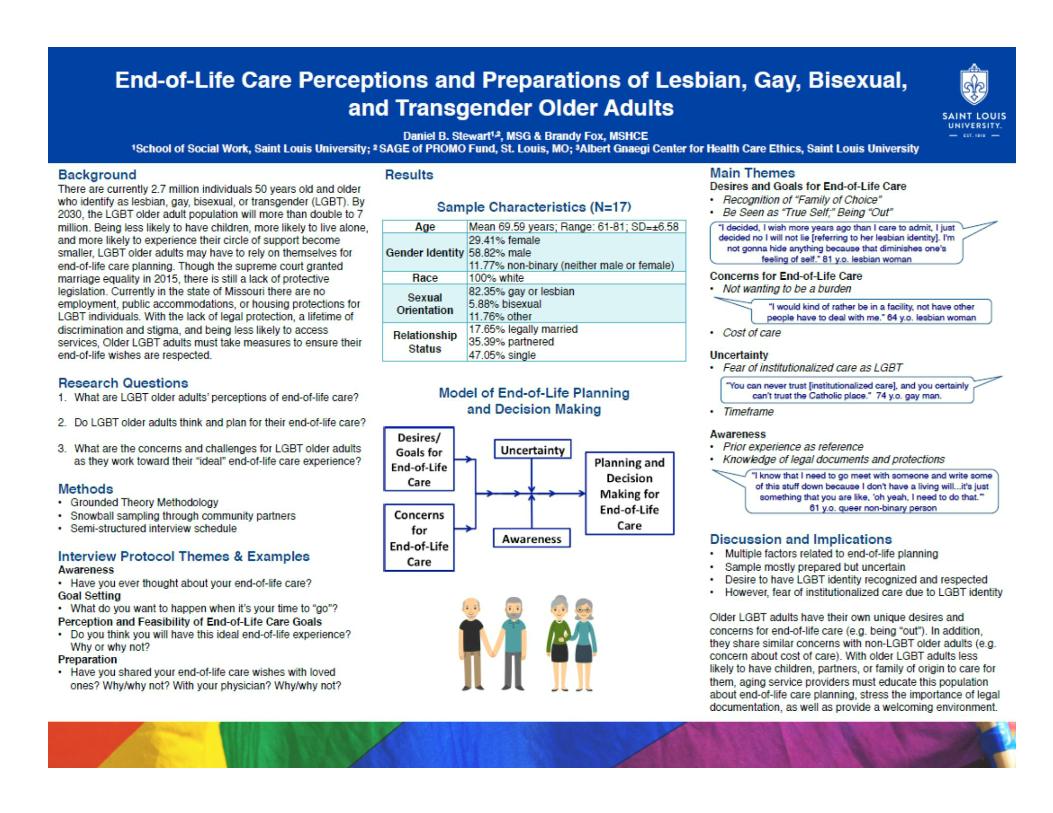End-of-Life Perceptions and Preparations of Lesbian, Gay, Bisexual and Transgender Older Adults
May 2018 | Daniel B. Stewart, MSG - School of Social Work, Saint Louis University & SAGE of PROMO Fund and Brandy Fox, MSHCE - Albert Gnaegi Center for Health Care Ethics, Saint Louis University
Little is known about what LGBT older adults think of, prepare for, and want for their end-of-life care experience. In order to fill the gap in knowledge, two researchers from Saint Louis University interviewed 17 LGBT individuals, 60 years and older. Since LGBT older adults are less likely to have children, more likely to live alone, and more likely to experience their social network become smaller, this population may have to rely on social service and long-term care providers to plan and implement their end-of-life care decisions. Participants in the study expressed desires and concerns unique to identifying as LGBT (e.g. being "out;" having family of choice recognized) as well as had similar thoughts (e.g. concern of cost, knowledge of legal documents) as non-LGBT older adults. The findings suggest the need for social service and long-term care providers to educate this population on end-of-life care planning, stress the importance of legal documents, and ensure they are providing an LGBT welcoming space.

